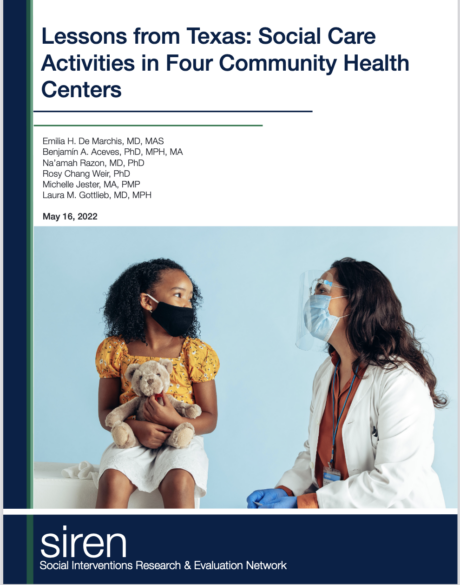In a newly-released SIREN issue brief, a study funded by Episcopal Health Foundation explores how four Community Health Centers in Texas collect and use patient social risk data, both to provide social assistance and to inform clinical care. This social data includes information about underlying, non-medical factors known as social determinants of health (SDOH) that may impact patients’ health like food insecurity, financial strain, unstable housing, lack of health insurance, and more.

Read the complete study report
“While there’s momentum and interest to conduct SDOH screening, little is known about the different practices and experiences at community health centers,” says Shao-Chee Sim, EHF’s VP for Research, Innovation and Evaluation. “More than just identifying patients’ SDOH needs, this research is intended to share important insights about how clinics are using SDOH data to make adjustments in direct medical care – an important gap in the current state of research.”
The report provides examples of clinical adjustments based on different non-medical factors. For example, medical providers may adjust insulin dosing over the course of a month to avoid hypoglycemia if a diabetic patient reports decreased food supply at end of the month when food benefits run out.
For patients battling financial issues, doctors may provide higher-dose prescriptions with pill splitter to decrease medication co-pays.
The SIREN study highlights on-the-ground barriers to implementing, sustaining, and scaling social care activities, including activities related to developing awareness, providing assistance, and otherwise using social risk information to improve medical care decision-making.